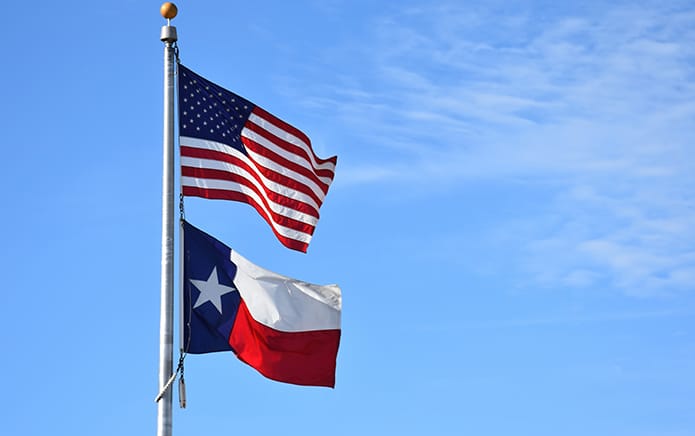In a major blow to LGBTQIA+ rights, Texas’ Supreme Court has ruled that judges can refuse to marry same-sex couples.
On 24 October, the state’s highest court issued an order adopting comment to Canon 4 of the Texas Code of Judicial Conduct, which focuses on the “judge’s extra-judicial activities to minimise the risk of conflict with judicial obligations.”
According to the newly implemented comment, effective immediately, judges who “publicly refrain from performing a wedding ceremony based upon sincerely held religious belief” will not be in violation of the state’s judicial impartiality rules.
According to KERA News, the rule change comes after years of pushback by state legal officials against same-sex marriage and a 2020 lawsuit filed by Jack County judge Brian Umphress.
In the suit, he challenged the State Commission on Judicial Conduct’s now-withdrawn 2019 sanction of a Waco, Texas judge who refused to marry gay couples, despite still marrying heterosexual couples.
Umphress’ decision to sue stemmed from his alleged fear that he could face the same sanction.
Shortly after the amendment was announced, Texas Supreme Court clerk Blake Hawthorne said the court would not comment on the change in a statement to the aforementioned news outlet.
“The order speaks for itself, and the Court cannot comment on its connection to pending litigation,” he said.

As of this writing, the State Commission on Judicial Conduct have not commented on the aforementioned change.
The recent development in Texas comes a few weeks before the US Supreme Court will consider whether it will hear a case challenging same-sex marriage.
Back in July, Kim Davis — who made headlines in 2015 for refusing to issue marriage licenses to same-sex couples — filed a petition for a writ of certiorari, appealing two past verdicts that ordered her to pay $100,000 to one of the same-sex couples she denied a marriage license to, and $250,000 in attorney fees.
The filing also urged the Court to overturn the landmark Obergefell v. Hodges ruling, calling it “grounded entirely on the legal fiction of substantive due process.” Davis further claimed that the 2015 decision forced her to choose “between her religious beliefs and her job.”
On 23 October, the Court announced that it had set a date to consider whether to hear the challenge.
According to SCOTUSblog, the nine justices will meet in a private conference on 7 November.
The blog noted that the Court usually grants reviews after two consecutive conferences. The upcoming hearing will be the first for Davis’ case. If the Court denies a review following its meeting on 7 November, an announcement could be released as soon as 10 November.
For information about the status of marriage equality in the US, click here.